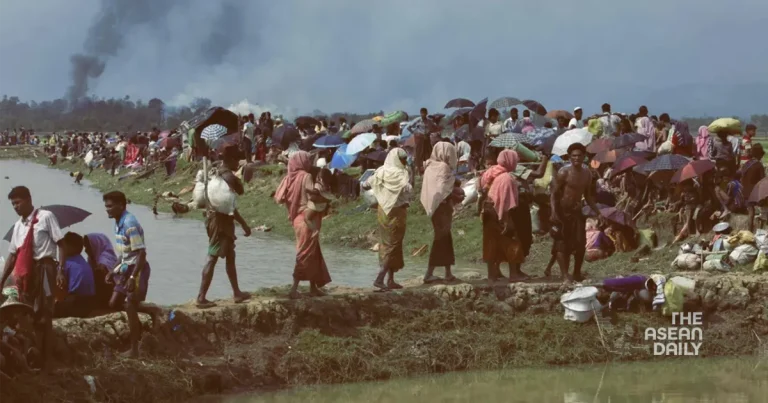23-6-2024 (DHAKA) Amidst escalating violence in Myanmar’s western Rakhine state, there have been reports of Rohingya Muslims fleeing across the border into Bangladesh, according to a key refugee official. However, the Bangladeshi government maintains its stance of not accepting more refugees from its war-torn neighbour.
In a troubling development, Mohammed Mizanur Rahman, the official tasked with refugee relief and repatriation, has revealed that his office has received information about Rohingya individuals managing to enter Bangladesh through various means and seeking refuge in different locations across the country. “Some people have managed to enter Bangladesh in various ways and have taken refuge in different places,” Rahman, based in the southeastern coastal region. “I believe some people are being allowed to enter unofficially.”
The Rohingya community has faced decades of persecution in Buddhist-majority Myanmar, with a mass exodus occurring in 2017 following a military-led crackdown on the minority group. Nearly a million Rohingya refugees are currently housed in camps in Cox’s Bazar, Bangladesh.
The recent surge in violence in Rakhine can be attributed to the breakdown of a ceasefire between the Arakan Army (AA), one of Myanmar’s most powerful ethnic armed groups, and the ruling junta late last year. The AA has since captured nine key towns in the coastal province and has been pursuing an offensive to gain control of more territory, posing a significant challenge to the junta’s grip on power.
Concerns have been raised over the plight of the Rohingya population caught in the crossfire. In May, the AA claimed to have taken control of Buthidaung town, which had a sizable Rohingya population, amidst accusations of targeting members of the Muslim minority community during the offensive – allegations denied by the rebel group.
The situation has taken a more alarming turn as the AA recently warned residents of Maungdaw, a predominantly Rohingya town west of Buthidaung, to evacuate ahead of a planned offensive on the settlement. With exit routes blocked and an estimated 70,000 Rohingya feared trapped in the area, the residents of Maungdaw find themselves in a dire predicament, prompting intervention from the United Nations High Commissioner for Human Rights.
Rahman disclosed that he has been receiving messages from Rohingya organisations and the United Nations High Commissioner for Refugees (UNHCR) regarding the desperate situation faced by those stranded in Maungdaw, expressing their desire to seek refuge in Bangladesh for protection.
While the Bangladeshi government has not yet responded officially, a foreign ministry official, speaking on condition of anonymity, stated that there has been no change in the country’s policy regarding the Rohingya refugees.




